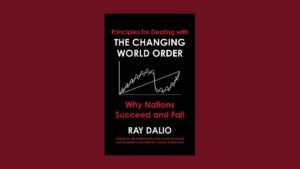To err is human, to repeat is Market Gurus
Lottery and underworld are the only two options that possibly offer you making
easy money. But do they? Next is considered stock markets, by many educated and illiterates. Making money wasn’t easy in my grandfather’s days. It isn’t going to be
any in future.
The English dictionary defines the three basic terms – investment, speculation and trading – often confusingly, and the use of which has always been at the centre of various debates.
Investment (noun): money put in a business, bank, etc for earning income or profit;
Speculation (noun): guessing without having enough information to be certain; engaging in transactions involving considerable risk in search of profit from change in prices.
Trading (noun): buying and selling; to exchange a more valuable or desirable item for a less valuable or desirable one.
Philosophers patronizing some banks and institutions advocate long term passive investment as virtuous and advise us to refrain from active stock trading that is termed as speculation and synonymous to evil. Isn’t everything in life itself a speculation? All investment is speculation when you risk your money and take chances on which way the stock you put your money on would go. “The only difference is in the impression somebody wants to make,” the first of The Zurich Axioms by Max Gunther says. Some people admit it, some glorified gurus don’t. Sad but true; if they admitted, the glory of the so-called guesses by their grey-cells would be gone. Being called an investor sounds safer; long term investor still better and respectable as if speculation was something sinful and contemptible.
One sells another buys, that’s how the commerce and the swindle in the stock market goes on. Advisers, generally influential people, make rules that are best suited for their own business or their sponsoring institutions rather than the financial well-being of their audience. They usually don’t want the public to buy something that they themselves want to get. Likewise, they would want you to buy anything that they are selling.
We do not want small cash balances to remain idle in home lockers. Similarly, it is not unusual to think that the large hoarders of stocks, institutional investors and proprietary funds, also want their “stock” to run a little more instead of remaining in depository vaults. The stock exchange data in this regard is very insightful. What do the large proprietary and institutional funds do with their massive stock holdings? As a group, they are the biggest traders. And you thought you could beat them by just “buy and sit tight” or SIP and sleep. At market tops, they could offer very “pressing” reasons why you should stick with stocks and forget about market correction. People tend to attach too much importance to current trend in vogue and believe that it will continue forever.
Prices move up and down; they always have and will forever. The moment-to-moment change in the index or stock price isn’t caused by fundamental factors alone. Most of the times, it’s the “perception” about the likely changes in fundamentals and the price itself that drives the price. All investments do not compulsorily bring profits and all speculation does not necessarily lead to losses. Money lost by speculation alone may be small compared to the enormous sums lost by the so-called investors who watch when the price goes against their trade and let their investments evaporate before the stocks disappear from the daily quotation list.
What differentiates losers from winners and what brings profit and avoid losses in stock market is intelligence. Trading or investing intelligently means anticipating today what would become obvious tomorrow. When you are in control of your decision, it is investment. When your decisions are not in your control, or when you follow a ‘tip’ – a decision by someone else, it is speculation. Why would somebody give you an idea, popularly called ‘tip’? If it is going to make money for you, it must equally be profitable for the person who is giving the tip as well. We have learnt, many times the hard way, that no one offers free lunch in this world. Beware! the stock exchanges are also sending short messages on mobile phones. The tip may actually be a “trap.”
























